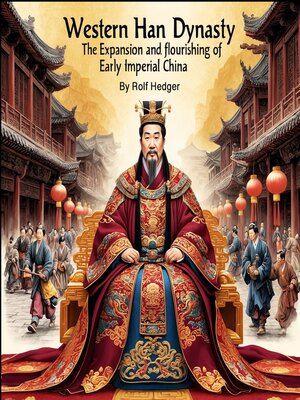Western Han Dynasty
audiobook (Unabridged) ∣ The Expansion and Flourishing of Early Imperial China
By Rolf Hedger

Sign up to save your library
With an OverDrive account, you can save your favorite libraries for at-a-glance information about availability. Find out more about OverDrive accounts.
Find this title in Libby, the library reading app by OverDrive.



Search for a digital library with this title
Title found at these libraries:
| Library Name | Distance |
|---|---|
| Loading... |
The Western Han Dynasty (206 BCE – 9 CE) emerged following the collapse of the Qin Dynasty, a period marked by harsh legalist rule and widespread rebellion. The fall of the Qin created a power vacuum, leading to years of conflict between rival warlords. Among them was Liu Bang, a peasant-born general who would go on to establish one of China's most influential dynasties. His leadership, pragmatic policies, and ability to gain the support of both the military and the common people played a crucial role in shaping the early Han state.
Liu Bang, later known as Emperor Gaozu, rose to prominence during the rebellion against the Qin. Unlike his rival Xiang Yu, a nobleman known for his military prowess, Liu Bang relied on strategy, diplomacy, and alliances to gain an advantage. In 202 BCE, he decisively defeated Xiang Yu at the Battle of Gaixia, solidifying his control over China and declaring himself the first emperor of the Han Dynasty. His rule marked a shift away from the oppressive policies of the Qin, emphasizing stability, leniency, and bureaucratic governance.
One of Gaozu's first major reforms was the reduction of harsh legalist laws that had caused unrest under the Qin. He abolished extreme punishments, lowered taxes, and granted land to military leaders and allies. However, in order to maintain control, he adopted a semi-feudal system, granting large territories to loyal kings while keeping direct control over the central government. This system helped secure loyalty but later posed challenges as regional rulers sought more autonomy.







